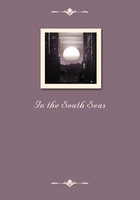
第16章 CHIEFS AND TAPUS(1)
WE used to admire exceedingly the bland and gallant manners of the chief called Taipi-Kikino.An elegant guest at table,skilled in the use of knife and fork,a brave figure when he shouldered a gun and started for the woods after wild chickens,always serviceable,always ingratiating and gay,I would sometimes wonder where he found his cheerfulness.He had enough to sober him,I thought,in his official budget.His expenses -for he was always seen attired in virgin white -must have by far exceeded his income of six dollars in the year,or say two shillings a month.And he was himself a man of no substance;his house the poorest in the village.It was currently supposed that his elder brother,Kauanui,must have helped him out.But how comes it that the elder brother should succeed to the family estate,and be a wealthy commoner,and the younger be a poor man,and yet rule as chief in Anaho?That the one should be wealthy,and the other almost indigent is probably to be explained by some adoption;for comparatively few children are brought up in the house or succeed to the estates of their natural begetters.That the one should be chief instead of the other must be explained (in a very Irish fashion)on the ground that neither of them is a chief at all.
Since the return and the wars of the French,many chiefs have been deposed,and many so-called chiefs appointed.We have seen,in the same house,one such upstart drinking in the company of two such extruded island Bourbons,men,whose word a few years ago was life and death,now sunk to be peasants like their neighbours.So when the French overthrew hereditary tyrants,dubbed the commons of the Marquesas freeborn citizens of the republic,and endowed them with a vote for a CONSEILLER-GENERAL at Tahiti,they probably conceived themselves upon the path to popularity;and so far from that,they were revolting public sentiment.The deposition of the chiefs was perhaps sometimes needful;the appointment of others may have been needful also;it was at least a delicate business.The Government of George II.exiled many Highland magnates.It never occurred to them to manufacture substitutes;and if the French have been more bold,we have yet to see with what success.
Our chief at Anaho was always called,he always called himself,Taipi-Kikino;and yet that was not his name,but only the wand of his false position.As soon as he was appointed chief,his name -which signified,if I remember exactly,PRINCE BORN AMONG FLOWERS -fell in abeyance,and he was dubbed instead by the expressive byword,Taipi-Kikino -HIGHWATER MAN-OF-NO-ACCOUNT -or,Englishing more boldly,BEGGAR ON HORSEBACK -a witty and a wicked cut.Anickname in Polynesia destroys almost the memory of the original name.To-day,if we were Polynesians,Gladstone would be no more heard of.We should speak of and address our Nestor as the Grand Old Man,and it is so that himself would sign his correspondence.
Not the prevalence,then,but the significancy of the nickname is to be noted here.The new authority began with small prestige.
Taipi has now been some time in office;from all I saw he seemed a person very fit.He is not the least unpopular,and yet his power is nothing.He is a chief to the French,and goes to breakfast with the Resident;but for any practical end of chieftaincy a rag doll were equally efficient.
We had been but three days in Anaho when we received the visit of the chief of Hatiheu,a man of weight and fame,late leader of a war upon the French,late prisoner in Tahiti,and the last eater of long-pig in Nuka-hiva.Not many years have elapsed since he was seen striding on the beach of Anaho,a dead man's arm across his shoulder.'So does Kooamua to his enemies!'he roared to the passers-by,and took a bite from the raw flesh.And now behold this gentleman,very wisely replaced in office by the French,paying us a morning visit in European clothes.He was the man of the most character we had yet seen:his manners genial and decisive,his person tall,his face rugged,astute,formidable,and with a certain similarity to Mr.Gladstone's -only for the brownness of the skin,and the high-chief's tattooing,all one side and much of the other being of an even blue.Further acquaintance increased our opinion of his sense.He viewed the CASCO in a manner then quite new to us,examining her lines and the running of the gear;to a piece of knitting on which one of the party was engaged,he must have devoted ten minutes'patient study;nor did he desist before he had divined the principles;and he was interested even to excitement by a type-writer,which he learned to work.When he departed he carried away with him a list of his family,with his own name printed by his own hand at the bottom.Ishould add that he was plainly much of a humorist,and not a little of a humbug.He told us,for instance,that he was a person of exact sobriety;such being the obligation of his high estate:the commons might be sots,but the chief could not stoop so low.And not many days after he was to be observed in a state of smiling and lop-sided imbecility,the CASCO ribbon upside down on his dishonoured hat.
But his business that morning in Anaho is what concerns us here.
The devil-fish,it seems,were growing scarce upon the reef;it was judged fit to interpose what we should call a close season;for that end,in Polynesia,a tapu (vulgarly spelt 'taboo')has to be declared,and who was to declare it?Taipi might;he ought;it was a chief part of his duty;but would any one regard the inhibition of a Beggar on Horse-back?He might plant palm branches:it did not in the least follow that the spot was sacred.He might recite the spell:it was shrewdly supposed the spirits would not hearken.